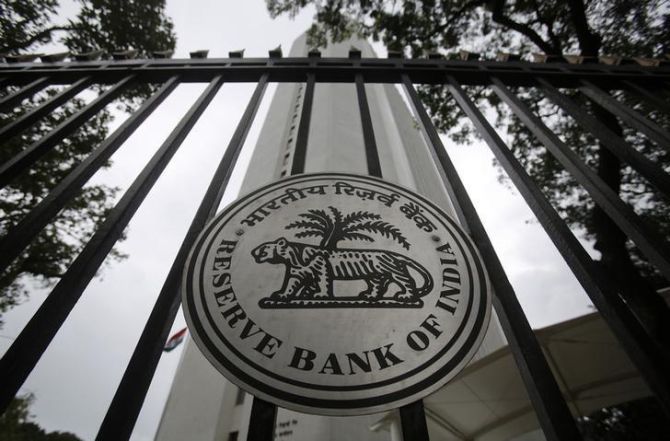The regulator said if the variable pay is up to 200 per cent of the fixed pay, at least 50 per cent of it should be in non-cash, and if the variable pay is above 200 per cent, 67 per cent of it should be paid via non-cash instruments.

The Reserve Bank on Monday issued compensation guidelines for whole-time directors and chief executives of foreign, private, small finance, payments banks and local area banks mandating the cash component of variable pay at 67 per cent.
Banks should continue to formulate and adopt a comprehensive compensation policy covering all their employees and conduct annual reviews, RBI said, adding the new guidelines will be effective next April.
The regulator said if the variable pay is up to 200 per cent of the fixed pay, at least 50 per cent of it should be in non-cash, and if the variable pay is above 200 per cent, 67 per cent of it should be paid via non-cash instruments.
It also wants banks to claw-back the non-variable pay components if there is divergence in provisioning for NPAs or asset classification exceeds the prescribed threshold for public disclosure.
"The policy should cover all aspects of the compensation structure such as fixed pay, perquisites, performance bonuses, guaranteed bonuses, severance package, share-linked instruments like employee stock option plans, pension plans, and gratuity," RBI said in a notification.
Foreign banks operating under the branch mode will have to continue to submit a declaration to RBI annually from their head offices confirming that the compensation structure of those working in the country are in conformity with principles and standards set by the Financial Stability Board.
RBI said, will take this into account while approving CEOs' compensation.
The compensation proposals for CEOs and other staff of foreign banks which have not yet adopted the FSB principles in their home country are required to implement the compensation guidelines as prescribed for private sector banks.
Foreign banks operating as wholly-owned subsidiaries will follow the compensation guidelines prescribed for private sector banks.
The board of directors of banks should constitute a 'nomination and remuneration committee' to oversee the framing, review and implementation of compensation policy.
Banks should ensure that their whole-time directors/CEOs/material risk takers get a compensation adjusted for all types of risks and compensation outcomes which are in synch with the risk outcomes.
The guidelines said banks should ensure that the fixed portion of compensation is reasonable, taking into account relevant factors, including adherence to statutory requirements and industry practices.
"The variable pay can be in the form of share-linked instruments, or a mix of cash and share-linked instruments.
“There should be proper balance between the cash and share-linked components in the variable pay," RBI said, but adding that there should be a proper balance between fixed pay and variable pay.
For senior executives, including whole-time directors, and other senior employees, in adherence to FSB implementation standards, deferral arrangements must invariably exist for the variable pay, regardless of the quantum of the payout and that the deferral period should be at least three years.
Deferred remuneration should either vest fully at the end of the deferral period or be spread out over the course of the deferral period, it said, adding the deferred compensation should be subject to claw-back arrangements in the event of subdued or negative financial performance in the given year.
"Banks shall identify a representative set of situations in their compensation policies, which require them to invoke the clawback clauses that may be applicable on entire variable pay," RBI said.
Photograph: Reuters











 © 2025
© 2025